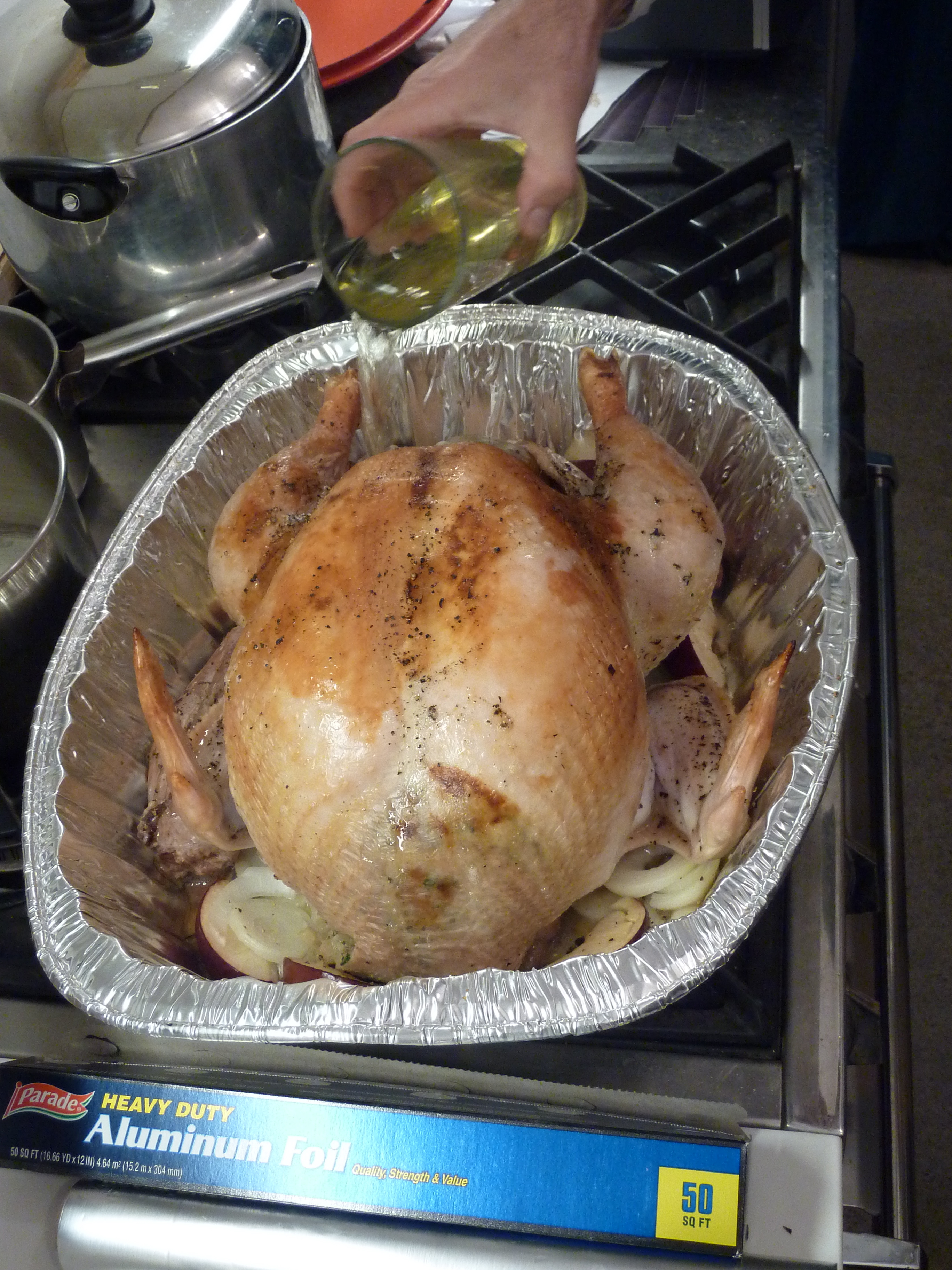“A good meal must be as harmonious as a symphony and as well-constructed as a Norman cathedral.”
Fernand Point, ‘Ma gastronomie’ (1897-1955)
h
This can be certainly be said of the Thanksgiving meal. Home cooked meals that traditionally took a full day and a host of hands to prepare now take just hours. What have we lost with these age-old preparations? Perhaps it’s some of the chemistry that’s evident in the techniques like brining, marinating, basting, and slow cooking?
s
“The Chemical Keys To Thanksgiving Dinner”
This was a very interesting webinar that I joined in on last week, courtesy of the American Chemical Society’s “Joy of Science” Food Chemistry Series.
The speaker was Dr Harold McGee, scientist and author of a regular column in the New York Times, “The Curious Cook”. You may also know him for his ground breaking book “On Food & Cooking: The Science & Lore of the Kitchen.” He writes a lot about the science of cooking, and in particular, the chemistry behind it, and how seasons marry and interact to produce tender, succulent and flavorful dishes.
I thought it might be fun to throw in some food science in our run-up to the Thanksgiving feast! So I’m going to take each of the main points that he covered in turn.
His Thanksgiving presentation covered a variety of things, including:
- The pros and cons of brining
- The two kinds of turkey muscle and how to best cook them
- The stuffing dilemma
- How heating affects the flavor of your sweet potatoes
- Why traditional persimmon pudding is nearly black, and how to make it persimmon-colored
d
So let’s start with the issue of brining…….
d
d
To Brine Or Not To Brine?
McGee talked about how contemplating dealing with that big bird can be a tough job. It’s all about compromise in many areas, including the decision to brine.
Brining involves the addition of salt and other seasonings to water, and then immersing the turkey in that solution for a number of days in advance. It’s a complex but very cool process, and the main driving force behind it is osmosis – the natural movement of water and substances to maintain a balance of their distribution between the meat and external brine solution.
Meat naturally contains a lot of water and little salt, so immersing it in brining solution causes salt to move into the meat, in exchange for water that is displaced from the meat to the outside solution. Consequently the meat ends up more salty and dry.
Now the salt gets to work on the meat. The sodium of the salt attaches to muscle proteins, causing them to pull apart from one another. This allows more water and salt to enter, and further weakens the muscle fibers. The water flow now reverses, and water and more salt move from the brining solution into the meat.
This process doesn’t happen quickly, however, especially in a cold refrigerator – and this is why you have to decide in advance whether you’re going to brine your turkey. One study showed that small pieces of meat about half an inch square were still gaining weight from water influx after three days in the brine.
Brined meats actually end up gaining about 10% or more of their weight due to the water and salt from brining. And when they’re cooked to the stage of “well done”, their modified muscle fibers lose water but still have enough left to be moist. The weakened muscle fibers are also what make them seem tender.
d
The Pros And Cons Of Brining
While brining certainly helps you get a more moist, tender meat, especially the breast, it’s not a foolproof process. It brings juiciness is at the expense of flavor – all that salty water is basically diluting the turkey’s natural flavor.
And a brined turkey can contain up to 10 times as much sodium as unbrined meat – not exactly good for your health in general!
And as if those reasons aren’t enough to put you off brining, bear in mind that you can’t get great gravy from a brined turkey – sadly your drippings will be far too salty to use.
d
What Will You Choose?
Clearly brining isn’t for everyone, but one important thing to remember is that it’s not something you can do on the day – so if you’re thinking of brining your turkey, you’d better make your decision quickly!
d
Image credit seemann @morguefile

How funny you would post this. We are brining our turkey this year (we try something new every year). Now I know how to do it.
Have you ever tried a turducken? I never will again.
Oh no, I’ve never tried turducken – funnily enough I heard this word for the first time last year and had to look it up. Sometimes I feel like I live in a closet!
I think Emeril coined it. Probably when he cooks it, it’s wonderful. Me–not so much.
I’ll stay away from even trying!
You mentioned several turkey cooking techniques.
How do you feel about deep frying the whole turkey?
For? Against? Puzzled?
Hehe, you know, I think I’m “puzzled”! I like that you gave that option! I’ve heard of people deep frying their turkey, but I’ve never tried it. Although to be honest, I’m not one for fried foods in general. I’d be willing to test it out though.